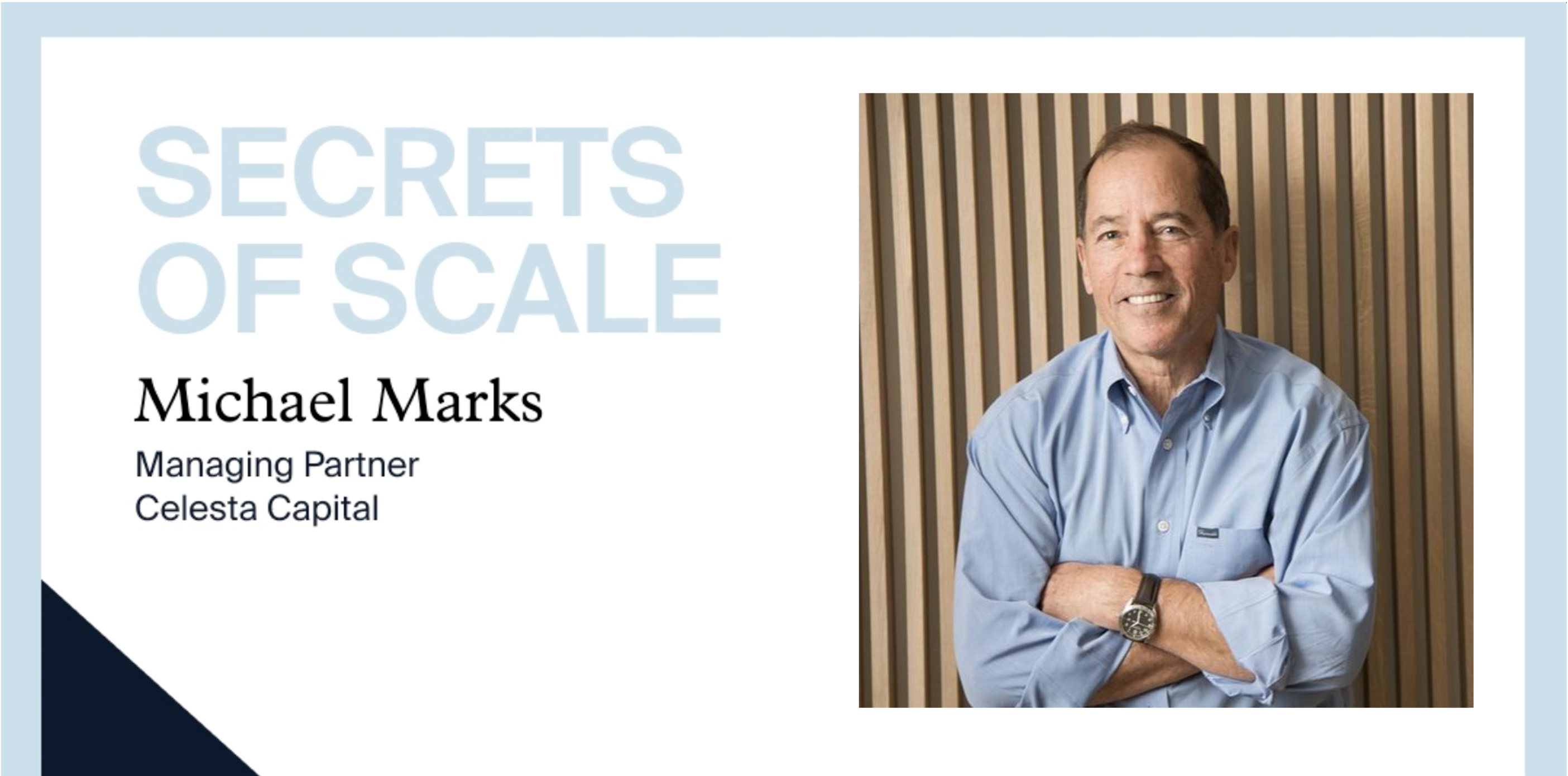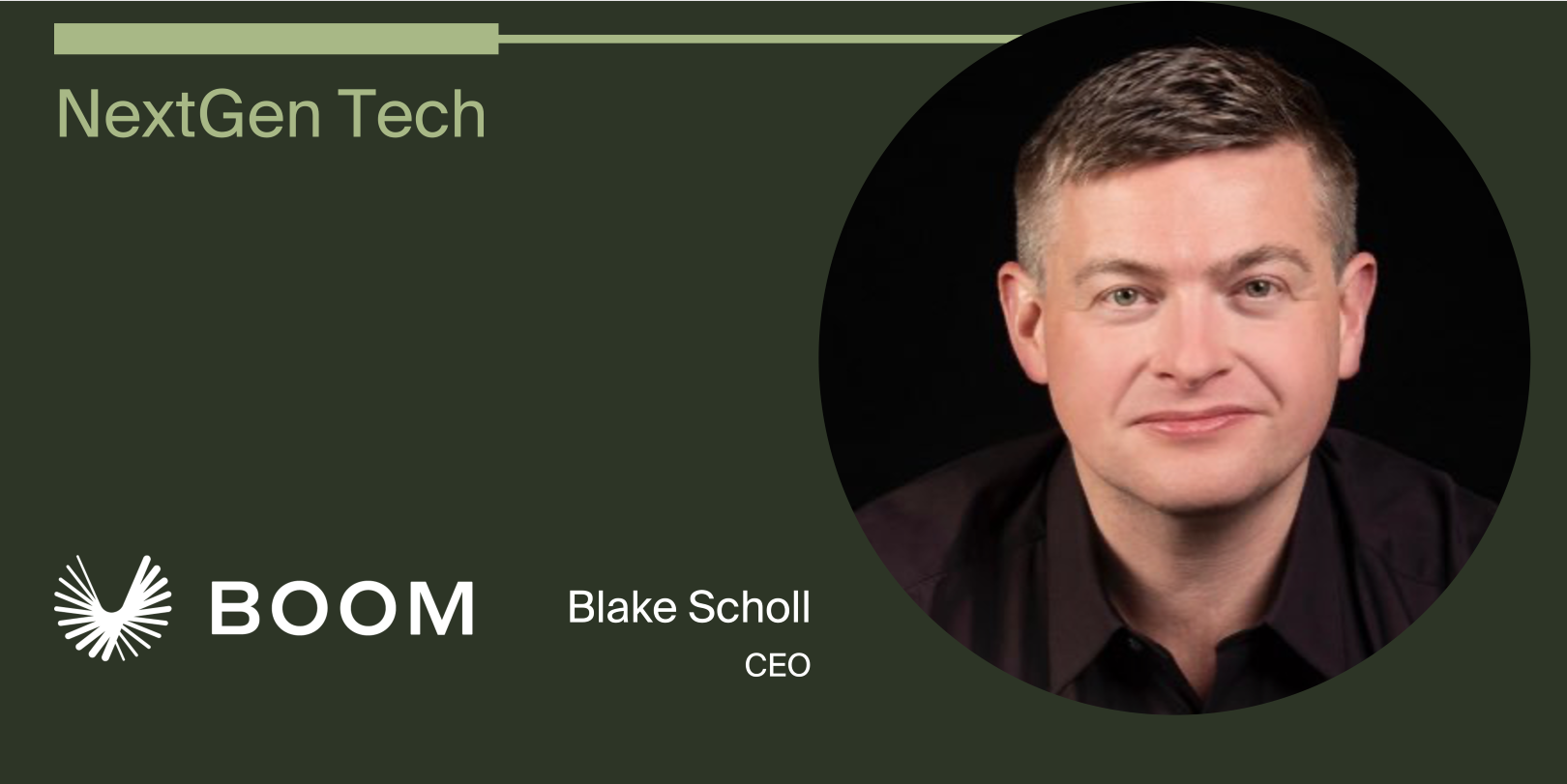Q&A with Celesta Founding Partner Michael Marks
Q&A with Celesta Founding Partner Michael Marks
Michael Marks shares his thoughts on the current funding landscape, his approach to investing, how to build high-performing teams, and much more.

Michael Marks shares his thoughts on the current funding landscape, his approach to investing, how to build high-performing teams, and much more.
What is your perspective on the current venture funding landscape? Is the ‘funding winter’ real? Is the market correction something that was warranted?
It is very typical to have a rise and fall in the markets, and we've had a fall in the tech market which is recovering now. There was a lot of hyperbole that happened after the Nasdaq crash in 2000, after the Lehman crisis in 2008, and it’s happening again now.
When this happens, a couple of things take place. You have markdowns, which nobody likes, and there is an overall period of adjustment. But it’s important to have a long-range perspective and not get overreactive. A venture fund has a time horizon of 10 to 15 years, so these short-term aberrations in the market don't really matter in the end. The quality of your investments is much more important.
As far as the funding ‘winter’, I don't think it's going to last long enough to be classified as a winter. Many VC firms are still raising huge funds. What is true is that it’s a tougher time to raise money if you're not a top-tier firm. And that's the way it should be, in my opinion. It’s no different than the stock market. When the market goes down, the best companies don't go down as much. When the market's going up, the best companies go up more.
Many of the bigger VC firms have been swinging for the fences the last several years and since then have had to take big markdowns. How does Celesta’s approach to investing and valuations compare?
The firms that have been the most active the last several years have been hit the hardest. Those firms have a lot of money and they often put too much money into too many companies at the highest prices. That really is a strategy issue, where you make very big bets and are willing to be in certain deals no matter the cost. Companies where VC investors have put in big dollars at high prices are the ones that have been hurt the most recently. Those bets may very well turn out to be right in the longer term, but it comes with risk in the short term with a lot of negative publicity. In the longer term, they may still turn out to be right – one big home run can make up for a lot of mistakes. But in the short term, those decisions look terrible.
We’re very different from many of these venture firms that invest hoping for a couple of home runs and then must do a lot of write-offs – that just isn't how we invest. We love home runs just like everybody else, and we've been fortunate to have a couple, but our goal is to build a portfolio with a lot of 10X returns and very few losses. 30X and 40X returns are fantastic, but we like having a much lower loss ratio than most firms in the industry. That's what generates great returns and that's what we and our LPs are comfortable with.
We want Celesta to be recognized as a firm where founders and entrepreneurs want to have us as investors because they know we can help them. They know we're value-add investors, that we will roll up our sleeves with them, that we have a strong ecosystem, and we can help them in ways others can't.
Do you have any advice for an entrepreneur who's looking for funding right now?
First, companies should be very careful with whatever funding they currently do have knowing that it is a tough environment right now for fundraising. VC companies like us are tending to keep our powder dry for the existing companies we have which may have capital needs in the near term.
The second thing is they should solve for capital, not valuation. In this environment, you don’t have the leverage to drive a hard bargain in terms of price. You must take the terms you can get to secure the capital you need to keep moving forward. Live to fight another day, continue building value in your business, and the valuation of your company will take care of itself in the long run.
What do you think sets Celesta apart as a firm?
There are two things that set us apart. One is that we have operating capabilities. When we talk about helping our companies, we actually get deeply involved and help run the companies, which is definitely not the norm for venture funds. We do it because we’re good at it and we understand it, which can be very helpful to early-stage companies.
The second thing is we have extraordinary technical capability in our firm. We're not just investors, we also have very deep domain expertise in the firm within the areas of tech we focus on. We have multiple partners with strong technology backgrounds, which not only gives us the opportunity to help our portfolio companies, but also to better understand the technologies prior to making investments. We can genuinely understand potential implications of the technologies, possible obstacles, and so on.
We want Celesta to be recognized as a firm where founders and entrepreneurs want to have us as investors because they know we can help them. They know we're value-add investors, that we will roll up our sleeves with them, that we have a strong ecosystem, and we can help them in ways others can't. Frankly, that's happening all the time now and it’s very energizing for us as investors to have people want us in the room. I hope we continue to build on that so we're the first phone call a founder makes.
What makes you excited about being a technology investor today?
In early-stage technology, it's always a good time to be investing. But two things are particularly good about the investing environment today. One is that prices are better. Valuations have normalized after several years of being overheated.
Second, and even more importantly, technology is exploding all around us. I've been a tech investor for 30 years and we started out investing in semiconductors, computing, the web, and then e-commerce. Today, you have all those same kinds of investment opportunities, but on top of that, you have the explosion of the biomedical sphere, artificial intelligence, and so many other areas that are creating tons of new opportunities. As better data streams develop and converge with the rise of more powerful computing, we are seeing more opportunities to invest in better companies today than perhaps ever before.
What advice do you offer to founders about building a successful business?
There are common pitfalls we try to help our portfolio companies avoid. One is that too many companies raise too much money and spend the money on things that don’t matter. What we try to do is to help our founding teams focus on driving the technology and using the maximum dollars they have available in R&D. Solidify the technology and develop real proof points as early as possible. Many startups spend too much money and time on go to market activities before the technology is ready, and then they run out of money. One of the good things about the environment right now is people are being very careful with their money and that's really a good thing. Some of these technologies are extremely difficult and take years to reach meaningful revenue. You must be very careful about spending money on things that aren't important.
Another area we push our entrepreneurs to really focus on is competition. A frequent mistake we see is that entrepreneurs compare a product they're developing – one that is not yet on the market – to the competition's product that's already on the market now. It's a totally unfair comparison. I'm always telling them: you're comparing yourself to something that was designed five years ago – what's their next product coming out?
How do you approach building high-performing teams?
I’ll call out two things. First, it's important in organizations to have a cultural and managerial style match between leaders and their teams. For example, when I was running and building Flextronics, I built a team of people around me who knew more than I did. I don’t like to micromanage. I like my team to figure out what their priorities should be, how best to support the business, and tell me rather than the other way around.
Now, that works great as a system if everybody is on the same page and buys into it. This is not the only approach that works, I've seen it work equally well where leadership likes to be very involved in the details. The important thing is for everyone to be aligned on how things are going to get done.
The second thing about creating and maintaining a high-performing team is very simple, but often the most difficult: you can’t be afraid to part with someone if they’re not a strong performer. If you're going to build a high performing team, you can't keep people around who are not performing because, not only are they not getting their own job done, it's demotivating to the team around them as well. I tend to move quickly in that regard.
You’ve been a technology executive and investor now for more than 40 years – what motivates you to keep investing and dedicating your time to help startups?
I'm a very curious person. I really like early stage investing because it isn't solely about driving up revenue at all costs. It’s about building all kinds of new technologies, which affords me the chance to spend my time learning about things I would otherwise never even know about.
The other thing is I love being with people. I enjoy leisure things at home like reading and playing piano, of course, but I just love hanging out with the team in our firm and the people at the companies where I'm involved. That’s really fun for me and I hope I get to keep doing it.
What have you read lately or what are you reading now that you're excited about?
I'm reading a book right now that is scaring the bejesus out of me. It's called This is How they Tell Me the World Will End, from a journalist who is writing about cyber warfare. It is very scary to see what people are doing, what hackers are doing, and what governments are capable of. There is a line in the book where they say that everybody recognizes that the world will end by accident, not by aggression. It's fascinating stuff – pretty scary too!






